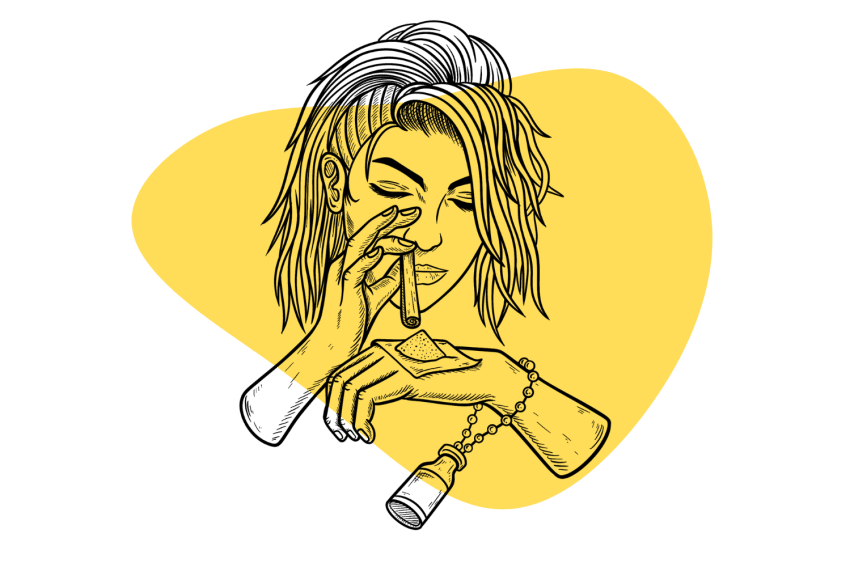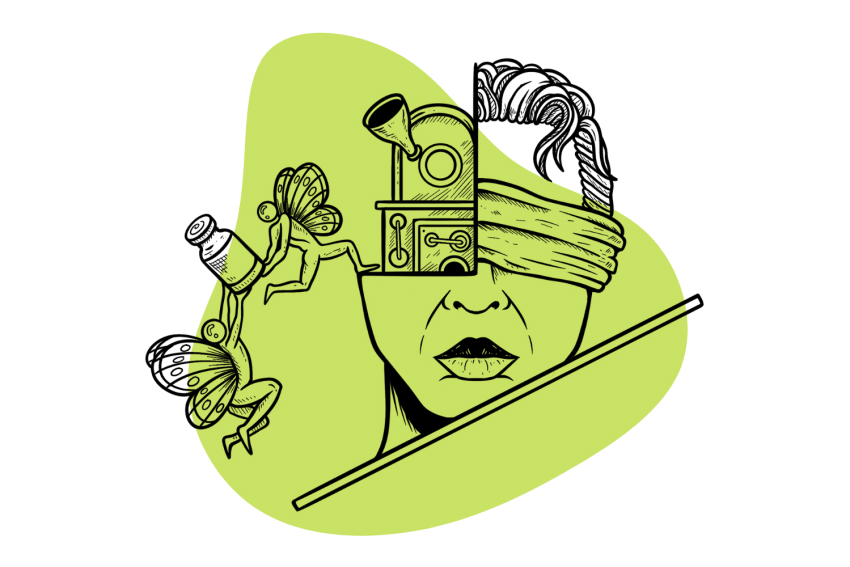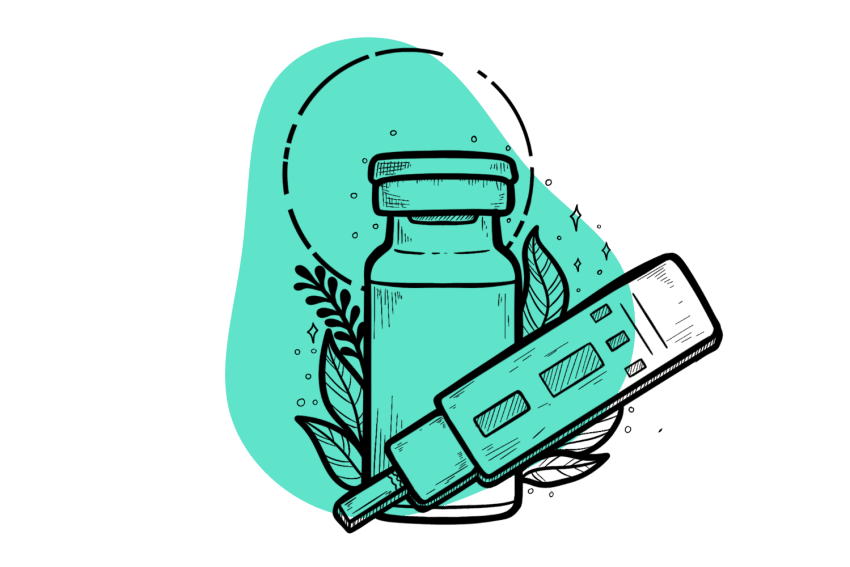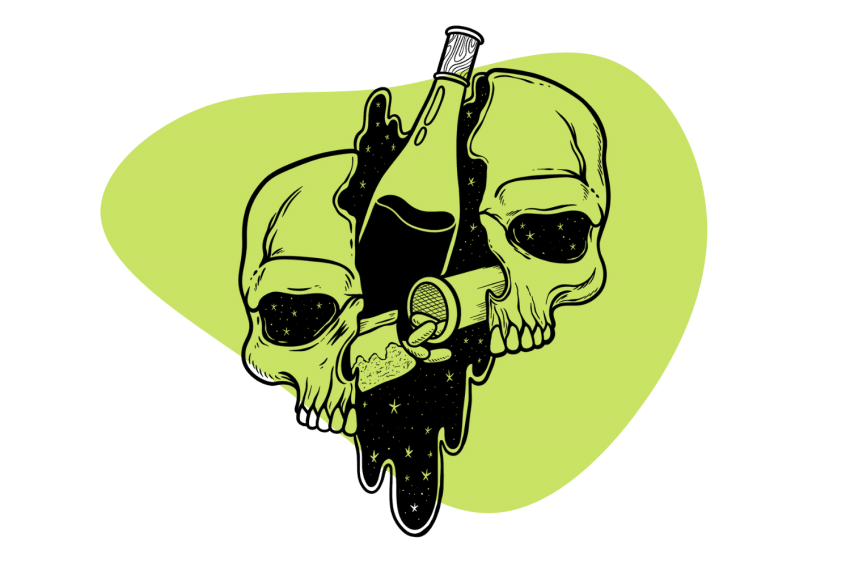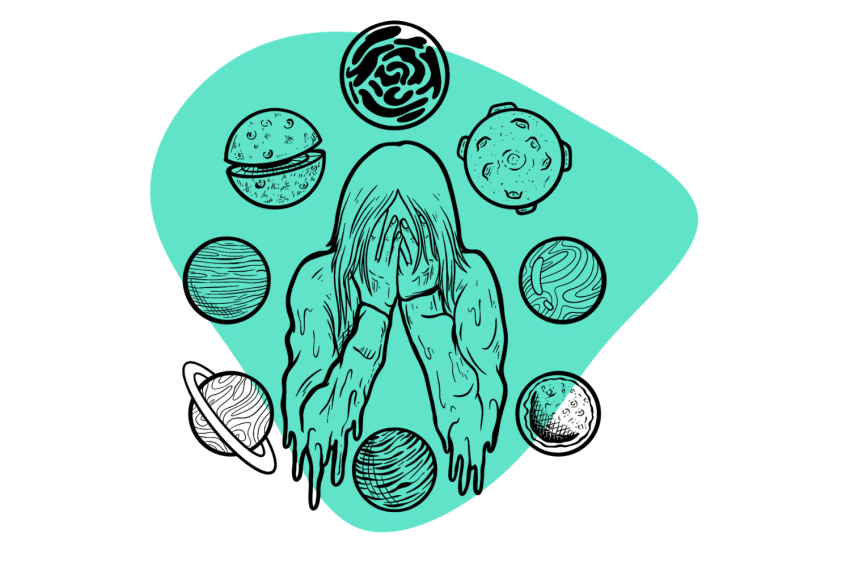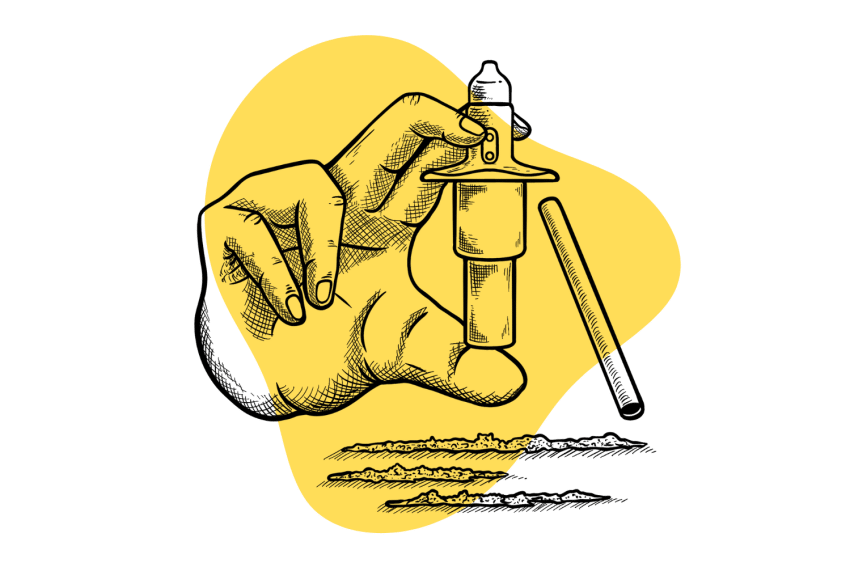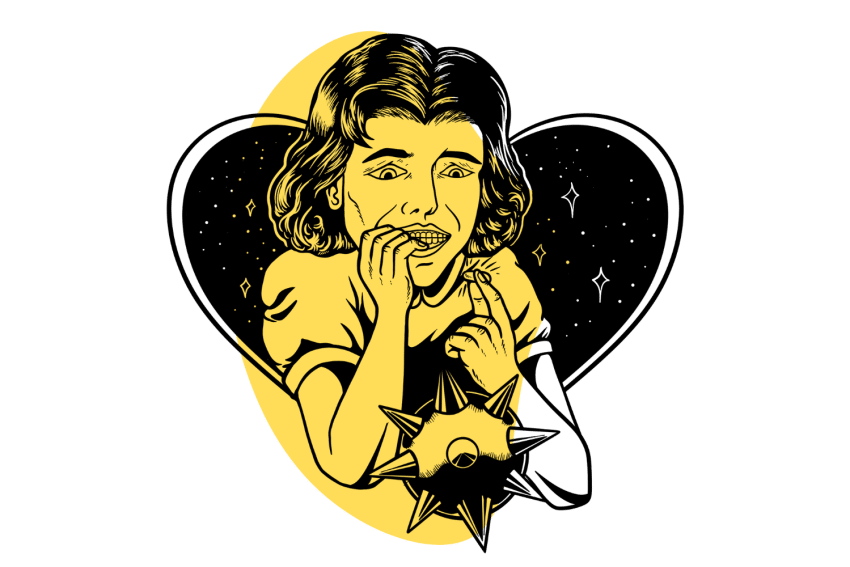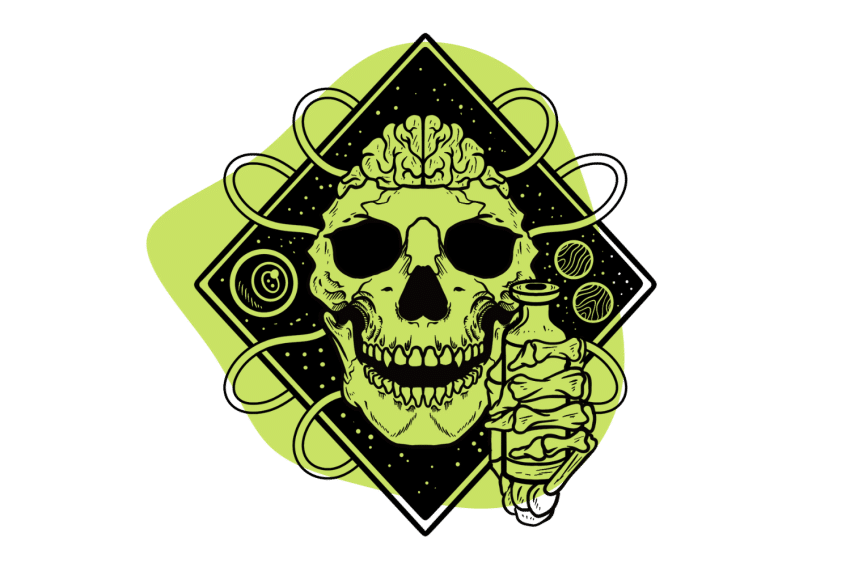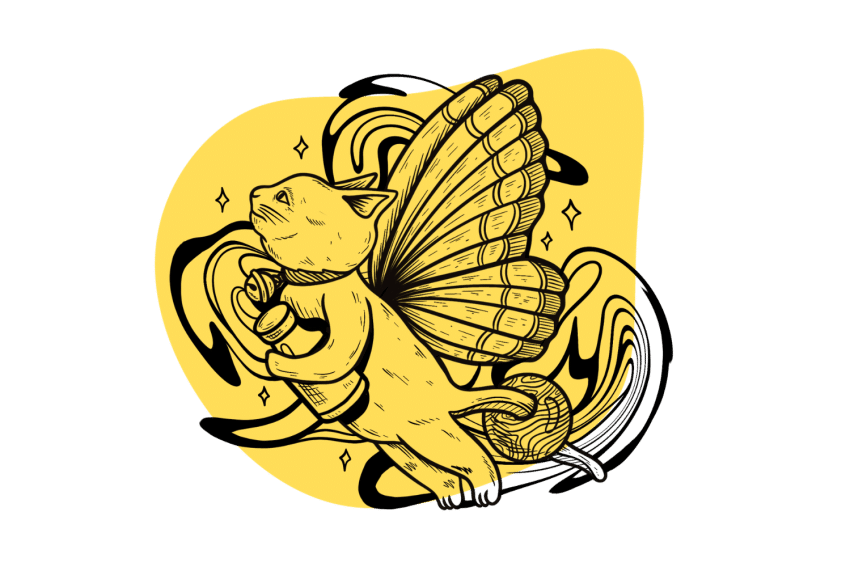The Colorful World of Ketamine Slang: Origins & Street Names For Ketamine
Ketamine has many names — let’s look at the most common and how they came about.
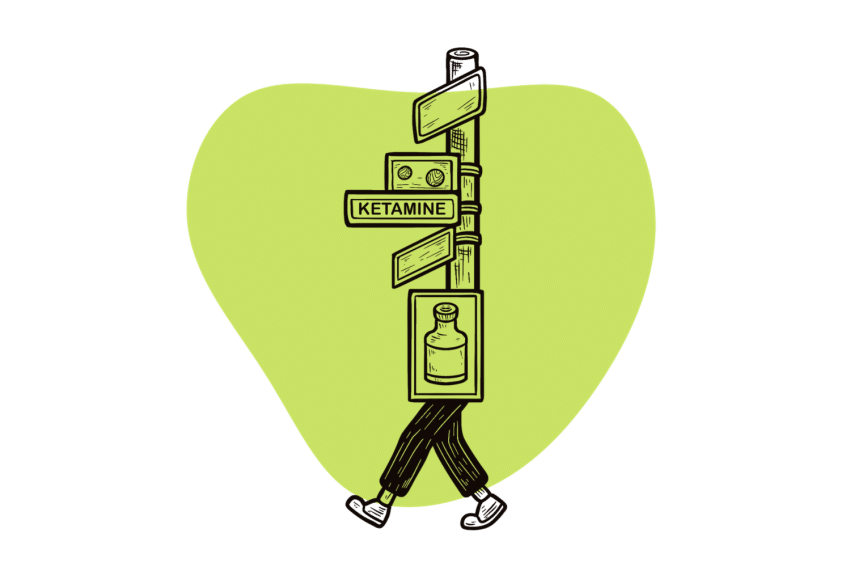
Ketamine was developed in 1962 as a dissociative anesthetic drug and is used in human medicine and veterinary practices as an anesthetic, analgesic, and for treating mood disorders such as depression and PTSD.
Over the decades, ketamine has worn many hats. The drug’s potent, psychedelic qualities piqued interest for recreational use beyond the sterile confines of the hospital. During this time, it’s collected quite a few nicknames.
Ketamine’s effects are rooted in its action on the NMDA receptors. It has the capacity to separate one’s conscious experience from the physical body, leaving users in a sort of “euphoric nothingness.” This effect, and its interaction with NMDA, has inspired many of its street names.
We’ll look at ketamine’s other names and their origins, its pharmaceutical names, and tips for staying safe when using it.
List of Common Ketamine Street Names & the Stories Behind Them
You know how every group of friends has inside jokes and nicknames only those in the group would get? As drugs enter underground circles, they also pick up some colorful names.
Depending on where you’re from, the crowd you hang out with, or even the music you’re into, the slang for recreational drugs can vary. Some street names for ketamine come from pop culture references, while others are like secret handshakes — a way to feel like you’re part of an exclusive group.
While some of ketamine’s street names, like “Vitamin K” or “Ket,” are pretty clear nods to its name, others leave you scratching your head. We did some digging to try to piece together how these nicknames came to be.
Special K
“Special K” conveniently aligns with the “K” in “ketamine.” It’s common in drug culture to use abbreviations or plays on words based on the drug’s scientific or commercial name. For instance, “E” for ecstasy or “Molly” for MDMA.
But there is a cultural association in the mix here, too.
Special K is also a brand of American breakfast cereal produced by Kellogg’s and marketed as a health and weight management meal. There’s a touch of irony in borrowing a name linked to a health-centric cereal for something as potent as ketamine, often used as a club drug.
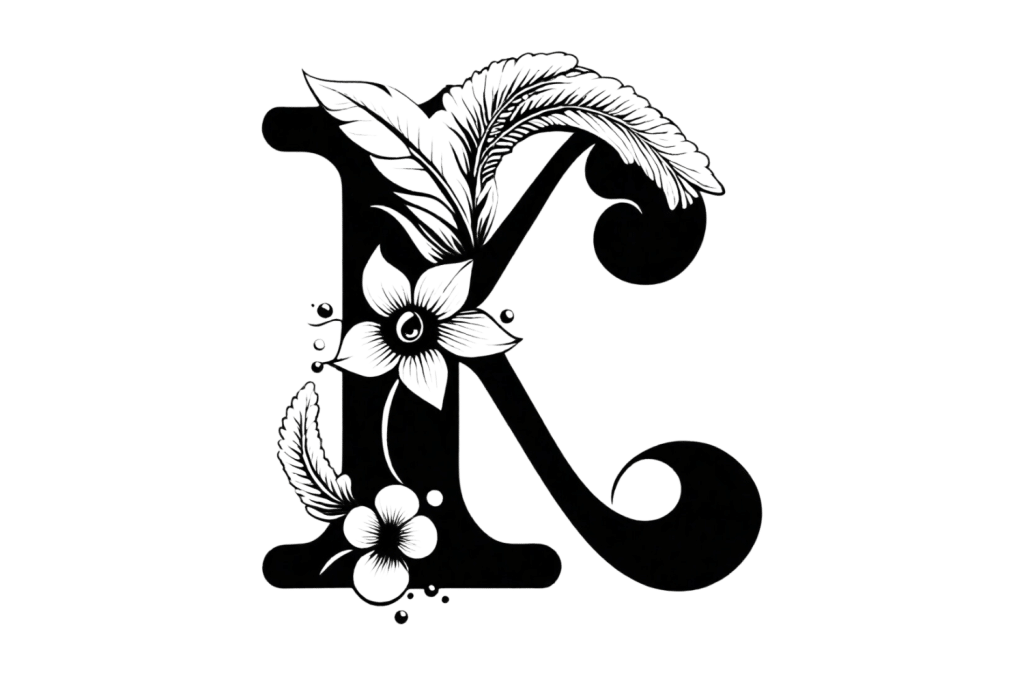
Super Acid
“Super Acid” is a street name that may not be as immediately intuitive as “Special K.”
Both ketamine and acid (the colloquial term for LSD or lysergic acid diethylamide) are notable substances within the psychedelic and psychonaut communities. While their chemical structures, primary mechanisms of action, and how you administer the drugs differ, they can induce profound alterations in perception, mood, and various cognitive processes.
As a club drug, taken as small bumps of white powder through the nostrils, ketamine can make you feel really chill — it helps loosen your inhibitions and zone out into the music. At higher dosages, you’ll start to feel its dissociative effects, which can include feelings of detachment from one’s surroundings and even from oneself.
On the other hand, LSD is a classic psychedelic that primarily affects serotonin receptors and can lead to vivid hallucinations and altered thought processes. At higher dosages of LSD, you’re unlikely to dissociate, but both experiences can lead to profound and sometimes ineffable psychedelic experiences.
“Super Acid” could be seen as an attempt to convey the intense, and for some users, “enhanced” psychedelic experiences they’ve had with ketamine compared to traditional acid (LSD). It reflects how street names often arise from users’ subjective experiences with drugs.
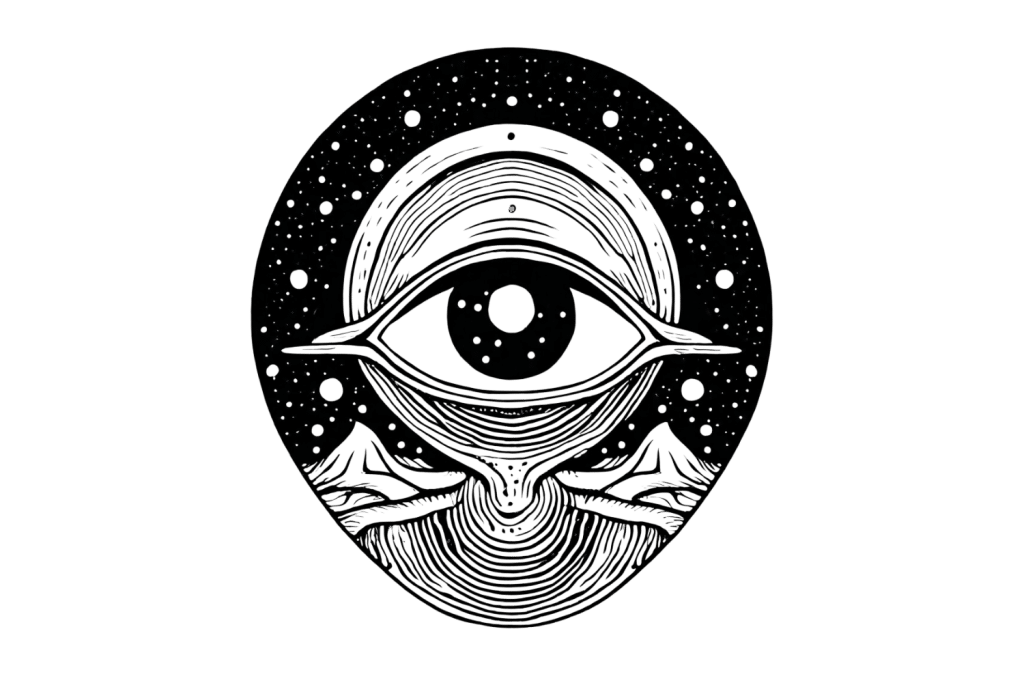
Keller
Drug culture often has dark or ironic humor when coining street names. “Keller” refers to Helen Keller — a renowned American author, disability rights advocate, and speaker who was blind and deaf from a young age.
One of ketamine’s primary effects is dissociation. This can manifest as detachment from one’s surroundings, body, or even reality. In extreme cases, there’s the “K-hole” — a state where users feel completely disconnected from the world. This profound sense of disconnection could metaphorically relate to the sensory isolation experienced by someone both blind and deaf.
We’re not big fans of this slang, to be honest. Using Helen Keller’s name as a drug reference feels wrong — like it’s downplaying all the amazing things she did and the challenges she faced.
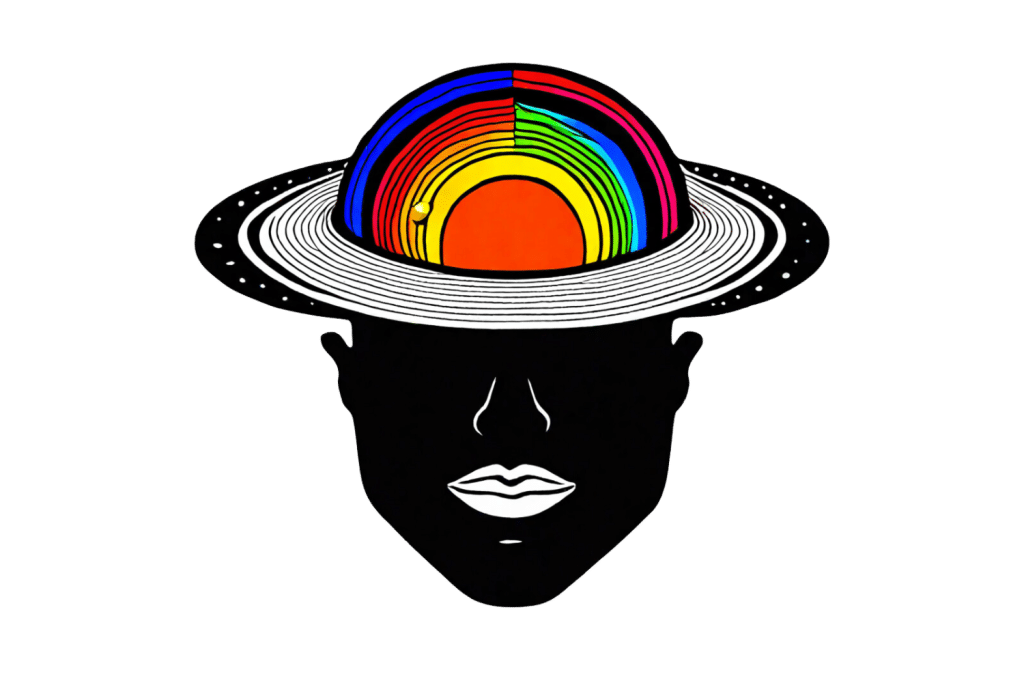
Blind Squid
“Blind Squid” is another obscure street name for ketamine that references its short-term effects. We couldn’t find the exact origins of this name, but we can make some guesses.
Ketamine’s trippy dissociative effects could feel like you’re caught in a squid’s ink cloud, not really seeing things clearly. Squids shoot out ink as a defense mechanism, causing temporary blindness and confusion as they escape from predators.
Drawing that line, “Blind Squid” for ketamine, kind of makes sense, right?
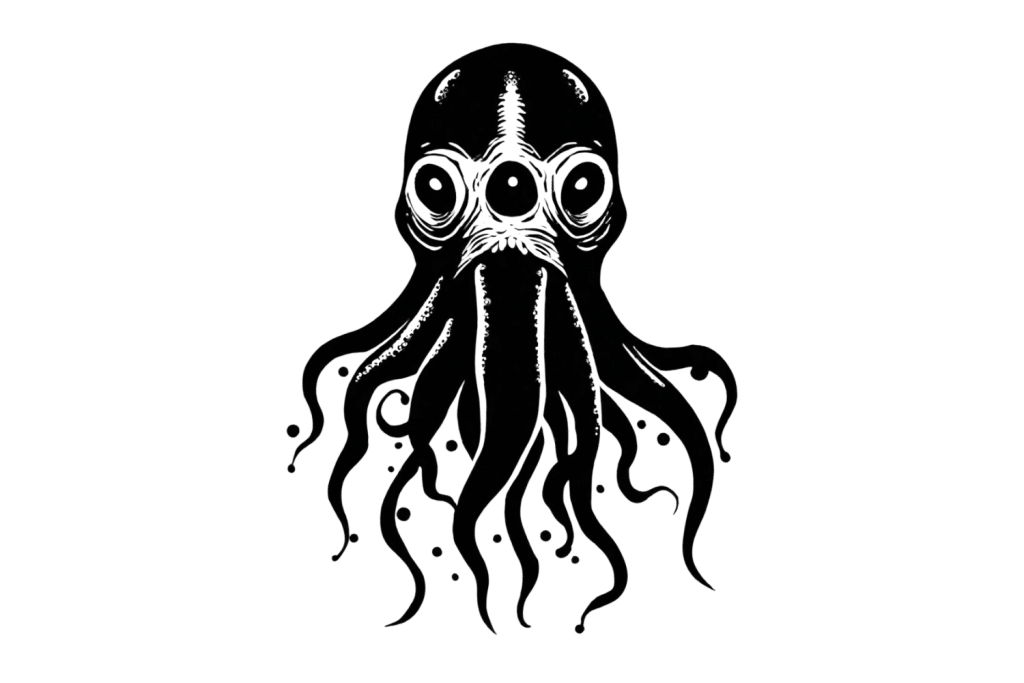
Special LA Coke
“Special LA Coke” is one of ketamine’s misleading street names and sounds like an inside joke that caught on or something more sinister like facilitating sexual assault.
Both ketamine and cocaine can be snorted in powder form, so there’s that shared connection.
But there’s also a dash of irony here. Naming ketamine — which offers a vastly different experience from the stimulating ride of cocaine — as some “special” variant of coke could be someone’s mischievous way to intrigue or mislead the uninitiated.
Consuming a hefty dose of ketamine can plunge someone into a “K-hole” — an intense, immobilizing trip that leaves them vulnerable. Pairing this potent effect with such casual drug slang raises eyebrows, given its potential for misuse in dangerous scenarios, like as a date rape drug.
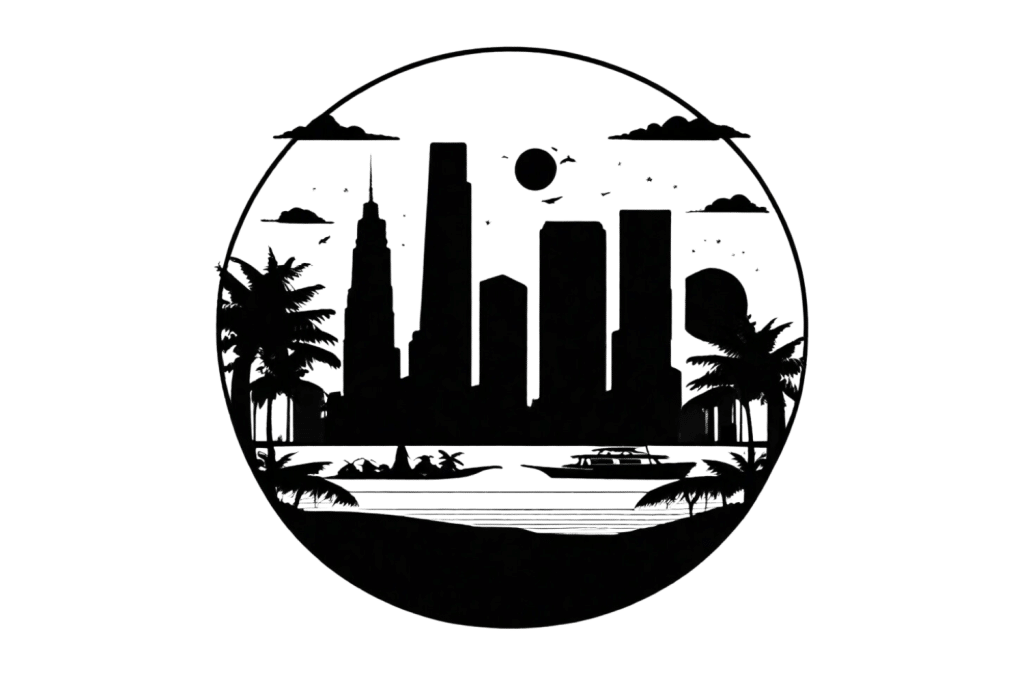
Honey Oil
This is another slang term for ketamine that’s relatively obscure and can come from various stories. “Honey Oil” is more likely the name for ketamine that’s injected in liquid form — though injectable ketamine has a very different look and consistency from honey.
Some people also smoke ketamine in a vaporizer or combined with cannabis products like cannabis oil, which has an amber color and sticky consistency like honey. Smoking ketamine is extremely dangerous as it’s harder to measure the dosage and can cause damage to the lungs.
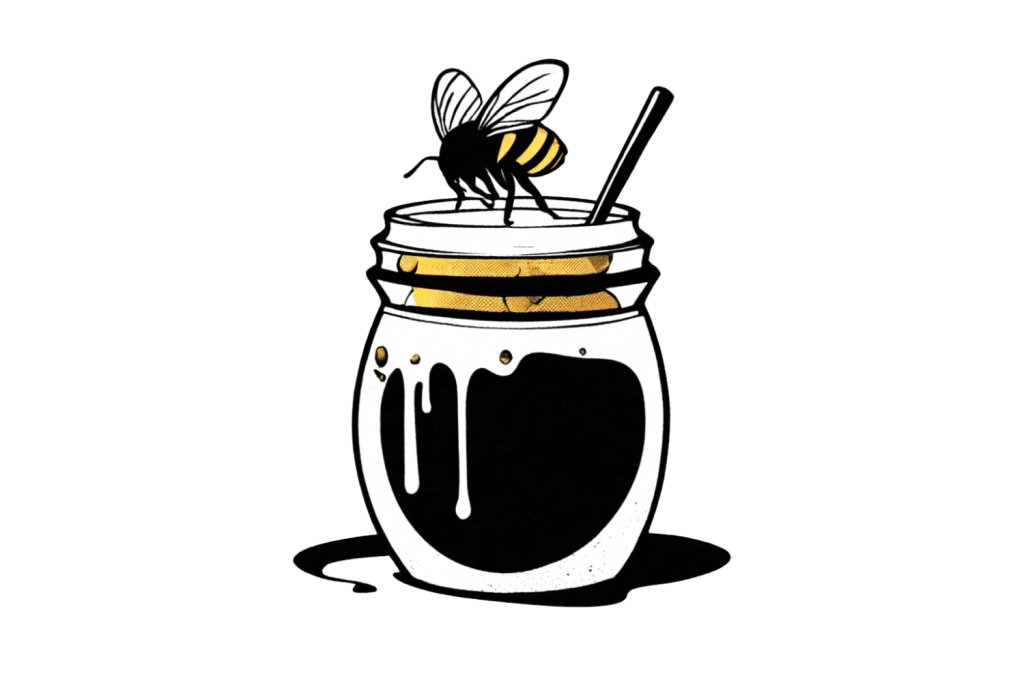
Cat Valium
Drawing a parallel with “Valium,” a medication known for its calming effects in humans, the slang “Cat Valium” cheekily highlights ketamine’s sedative properties when used in veterinary settings.
Other ketamine names include Kit Kat, Jet K, K-Hold, or K-Ways, which are simple plays of its name.
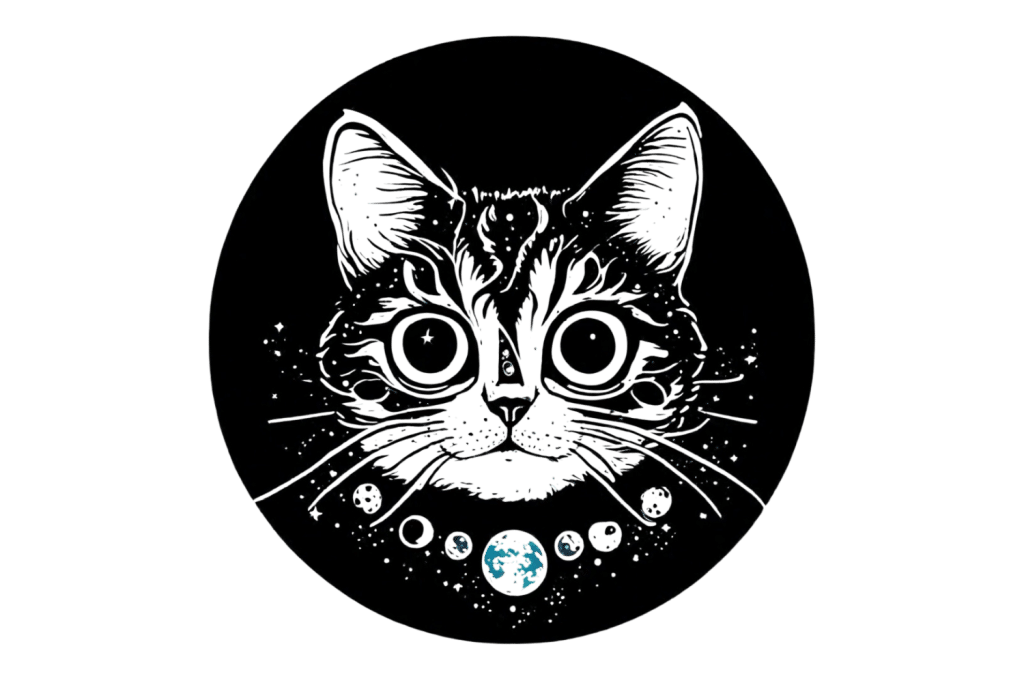
Pharmaceutical Brand Names for Ketamine
Ketamine has been marketed under various brand names since its discovery as a pharmaceutical that’s now used in therapy.
Ketamine is a Schedule III substance under the Controlled Substances Act. This places it in the company of other substances like codeine and anabolic steroids.
Schedule III drugs are perceived to have a moderate to low potential for physical and psychological dependence when compared to substances in Schedules I and II.
For instance, drugs in the Schedule I category are considered to have a high potential for abuse and have no accepted medical use in the U.S. In contrast, Schedule III drugs have an accepted medical use and less potential for abuse.
Some of the notable pharmaceutical brand names for ketamine include:
Ketalar
Ketalar, made by Par Pharmaceutical, is the most prominently used form of injectable ketamine in the United States by medical professionals.
Ketanest
This brand name is more widely used in Europe for medical procedures as an anesthetic. It’s manufactured by Pfizer and others and contains purely the S-ketamine isomer.
Ketaset
Ketaset, made by Zoetis Inc., is of the most commonly recognized veterinary formulations of ketamine. It’s used in various animals, including cats, dogs, and horses.
KetaVed
KetaVed is made by Vedco Inc. It’s a veterinary-only version of ketamine hydrochloride.
Kalipsol
Kalipsol is used worldwide as an intravenous anesthetic during dental or other oral surgical procedures.
Imalgene
Imalgene is manufactured by Boehringer Ingelheim. It’s a veterinarian-only medication used for dogs, cats, horses, and other animals undergoing surgery.
Spravato
This is a nasal spray of esketamine, a specific enantiomer (mirror image molecule) of ketamine used for treatment-resistant depression. Spravato is manufactured by Johnson & Johnson.
Vetalar
Vetalar is another common veterinary preparation of ketamine used for anesthesia during surgical procedures.
Is It Possible to Overdose On Ketamine?
Taking too much ketamine on its own isn’t usually life-threatening. However, when you add other illicit drugs or alcohol into the mix, the potential for a ketamine overdose drastically increases, which can lead to long-term health issues or fatalities.
You’ll want to watch for stuff like being unable to move, stiff muscles, a super-fast heartbeat, shaking uncontrollably, or violence. If you spot these, it’s a full-blown red alert — It’s time to get some help.
Witnessing a K-Hole
Experiencing or witnessing someone fall into a “K-hole” can be alarming. A k-hole is a state induced by ketamine where the user feels utterly disconnected from reality and loses consciousness.
If you’re around someone who looks like they’ve taken a trip to another dimension, here’s what you should do:
- Stay Calm — The environment can influence their experience, so staying calm and reassuring is essential.
- Ensure Safety — Keep a safe place where they won’t harm themselves or others.
- Monitor Breathing — Even in deep dissociation, they should be breathing steadily. If you notice any irregularities, get medical help.
- Stay With Them — While they may not be able to communicate effectively, your presence can offer comfort.
- Seek Medical Attention if Concerned — The effects of ketamine on its own don’t last very long (20-60 minutes at most). If they don’t return after an hour or show any distressing symptoms, get medical help.
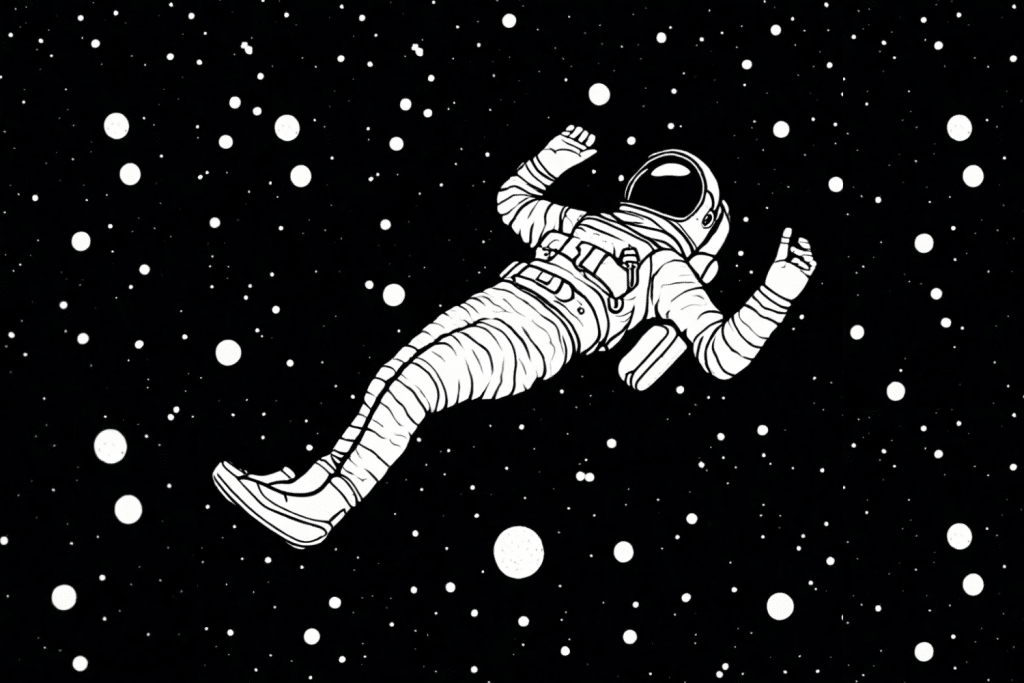
What Does Coming Down from Ketamine Feel Like?
The aftermath of a ketamine high isn’t particularly rosy, especially with larger doses. Users might grapple with short-term memory loss, clumsiness, impaired judgment, and heightened anxiety.
Physically, the body might feel achy, potentially resulting from staying in one position for too long or from movements during the high.
Alongside these symptoms, a wave of anxiety or introspection might roll in.
It’s not uncommon for users coming down from ketamine to desire some quiet time or rest post-experience, allowing their minds and bodies to recover and process the ketamine journey fully. Given these after-effects, you shouldn’t drive or make any important decisions until entirely sober.
The Takeaway: Ketamine Street Names
From the quirky “Blind Squid” to the familiar ring of “Special K,” these names give us a glimpse into the drug’s recreational use. But let’s not get too caught up in the fun names and forget what’s behind them.
If you’re considering trying ketamine for personal exploration or therapeutic reasons, always play it safe. Get into some solid research to better understand what you’re getting into, and maybe have a trip sitter on standby in case things get too trippy.
Subscribe to Tripsitter: Newsletter & Podcast
Unlock Your Mind: Subscribe for Expert Insights on Psychedelics 🍄🌵
Ketamine Decoded. Subscribe to the Tripsitter Podcast for more.

